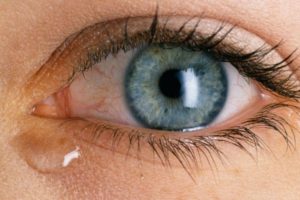Chances are if you’re reading this article you find joy in your morning cup of coffee. Maybe that is the one and only thing that gets you out of bed in the morning and powers you through your day. This may have left you wondering how healthy your reliance on coffee really is.
Contrary to popular belief, coffee actually is not bad for you. The actual beans used to brew coffee are rich in antioxidants and carry many health benefits. The only downfall to coffee is the caffeine content that you are consuming every time you have another cup, as caffeine has a number of unhealthy side effects.
Therefore, when evaluating the health of coffee making you happy, it is important to look at how much caffeine you are consuming in order to find that happiness you’re after! In this article, we will get further into this topic and discuss the science behind why coffee makes you feel happier and the additional pros and cons of coffee and caffeine consumption.
The Science on Why Coffee Makes You Happier
When you consume coffee, it mimics the neurochemical Adenosine that is responsible for making you feel sleepy. Now, this may sound like it’s going to make you sleepier since it is mimicking Adenosine; however, it’s the exact opposite! Since caffeine mimics the chemical, it searches out the adenosine receptors and blocks them from functioning normally.
This way, the Adenosine has no receptors to bind to and therefore prevents you from getting tired. This is how coffee keeps you alert and awake even on your sleepiest mornings. Coffee also stimulates neurotransmitters in the brain, which stimulate the feeling of being happy. By stimulating happy chemicals like dopamine, your brain starts to feel happier than before coffee.
Some additional chemicals that coffee has in high quantities include:
- 2-Ethylphenol: that’s the chemical that keeps you alert and active
- 3,5 Dicaffeoylquinic acid: this protects the brain from any neuron damage
- Trigonelline: This chemical is a form of vitamin B3 that works to fight cavity-causing bacteria in the mouth
- Niacin: another form of vitamin B3 that works in rejuvenating cells and preventing dementia
These provide additional health benefits that accompany the coffee bean. For anyone who consumes coffee, you are consuming these chemicals as well, which can help with health and happiness. Interestingly enough, the effects coffee has on the brain are comparable to other drugs, such as cocaine. Many common drugs block neurochemical receptors to give a more euphoric feeling.
This is one of the reasons that people can get hooked on coffee. For many people, myself included, this cuts too close to the bone. The caffeine can become addictive, and even create feelings of withdrawal when coming down off of the coffee. It can take weeks for people to get through the initial withdrawal sickness and lack of energy when trying to cut coffee out of their diet for this reason.
Therefore, although coffee is legal, it is still a highly addictive substance due to the way in which it impacts the brain and provides a release of chemicals like dopamine, creating a blissful happy feeling.
Other Benefits of Coffee
Besides being able to elevate mood, coffee has a number of other benefits. Coffee beans are packed full of antioxidants that can improve health and reduce the risk of certain diseases. In fact, coffee is one of the richest sources of antioxidants, therefore, making it somewhat of a superfood.
The antioxidants in coffee can reduce the risks of diseases such as cancer or heart disease. For most Americans, coffee is the most antioxidant-rich food they are consuming in their diet. However, keep in mind that the level of antioxidants varies greatly between coffee varietals. This is in part due to the caffeine content.
Straight black coffee has a higher level of antioxidants when compared to decaffeinated coffee. Therefore, the stronger and more concentrated your coffee is, the more density of antioxidants you will be consuming.
The Physical Benefits of Drinking Coffee
For those who drink alcohol, coffee can provide benefits to your liver health. In fact, a study that was conducted that included 125,000 people over the course of 22 years found that people who drank at least one cup of coffee per day were less likely to develop the autoimmune disease, liver cirrhosis. This disease is caused by excessive alcohol consumption.
This disease ultimately leads to liver failure and/or cancer, but with the protective benefits of coffee, consumers may be at a lower risk. In addition to liver cirrhosis, coffee can help in preventing non-alcoholic fatty liver disease. These benefits can keep those with predispositions to liver diseases or excessive drinking habits happier and healthier.
Harvard Medical School also found a correlation between coffee consumption and a reduction in skin cancer incidences. So not only can coffee improve your mood, but it can also provide health benefits when consumed in healthy quantities.
Coffee’s Effect on Your Fitness
For those who are active or even athletes, coffee can improve athletic performance due to the increased number of fatty acids entering the bloodstream. With the jolt of energy provided by coffee, your muscles are able to absorb and burn the extra fatty acids for fuel. This reserves your body’s energy stores for additional exertion if necessary.
Coffee also increases the epinephrine levels in your blood; this is the same as adrenaline, which is the fight-or-flight hormone. This hormone prepares the body for exertion, and because of this, it can up your physical performance. By having a cup of coffee a couple of hours before physical exertion, you may find that you have more energy, and your performance is elevated.
Therefore, for those who drink coffee, you may find that you’re more able to burn fat. This is the primary reason that the majority of fat-burning and weight loss supplements out there contain caffeine.
Caffeine effectively boosts your metabolic rate by up to 11%! However, the fat-burning effects of coffee diminish over time with long-term consumers.
Since the body gets used to the consumption of caffeine and the increased metabolic rate, it begins to adjust, which will slow down the fat burning once again to your normal rate.
This does not mean that you will stop losing fat over time, but rather that your fat burning will peak when you start drinking caffeine, then begin to level back out.
Psychological Benefits of Drinking Coffee
Since coffee does boost the mood, it has been found that it can also work effectively as an anti-depressant. When drinking small amounts of coffee every day, it can curb the risks of mental illnesses as the antioxidants in each cup can prevent brain inflammation and increase the flow of chemicals and hormones within our bodies that signal our brains to be happy.
Because of this, it has been found that those who consistently drink coffee experience fewer thoughts related to suicide and depression than those who do not drink coffee. A Harvard study conducted through their school of public health found that these results were consistent in both men and women.
These results are attributed mostly to the anti-depressant properties of caffeine. While people became happier and had more positive thought patterns when they drank coffee consistently, this does not mean that the more caffeine you consume, the happier you will be. This study was looking at controlled amounts of caffeine daily to avoid overconsumption of caffeine.
Since caffeine holds antioxidant, anti-inflammatory, and anti-apoptotic properties, it is ideal for aiding those with mental health issues and even those fighting Alzheimer’s disease. The caffeine in coffee can be protective to the brain and help the brain to be more resilient to stress and any neurological diseases or damage that come with age.
Maximizing Your Benefits
You will maximize the benefits you get from coffee by knowing exactly which coffee varietals to buy and how to consume it to benefit your needs. Beans that are lightly roasted are always going to have the highest amount of caffeine in them. Therefore, you can gauge the antioxidant levels by finding out if your coffee is a light or dark roast.
You will also get the most benefits from your beverage if you just drink plain hot black coffee with no additional additives. By adding things like sugar, sweeteners, cream, milk, or syrups to your coffee, you are adding more fat and sugar into your diet that will not be the best for your overall health.
For those who have an allergy to caffeine or simply prefer not to drink caffeine, keep in mind that decaf coffee does still have caffeine in it, just not as much. Therefore, if you start introducing decaf coffee into your life for the health benefits of coffee, you will find changes in the way your body feels due to the caffeine content.
Finally, knowing when to drink coffee within your routine is critical. If you are waking up around 6 am, the best time to consume your daily cup of coffee is going to be between 9:30 and 11:30 am. By giving your body time to acclimate in the morning, while also not drinking coffee too late in the day, you will find that your sleep patterns are disrupted the least.
Your body will best absorb the benefits of coffee when it is drunk in limited quantities, rather than just loading up on caffeine every day. If you are abusing caffeine and taking in too much throughout your days, you may build up a resistance or even an intolerance where the benefits will no longer be felt.
Downsides to Coffee?
As previously mentioned, due to the way coffee interacts with neurotransmitters in the brain, it can be very addictive for some. The feeling of happiness after drinking coffee is something sought after by many, and because of that, people get hooked on caffeine. And although caffeine consumption is unlikely to cause any serious long-term issues, there are side effects.
For any coffee lover out there, you may be familiar with the jittery feeling you get after drinking one cup too much. Or even the jitters you got when you first started drinking coffee and felt the impact of caffeine. While this often goes away with time, if too much caffeine is consumed, these jitters get increasingly worse and harder to control, which can be distracting to manage.
The most common side effects of coffee include:
- Headaches
- Insomnia
- Anxiety
- Irritability
- More frequent urination
- Sped up heartbeat
- Muscle tremors
While these are not going to be life-threatening, all are uncomfortable and can impact your daily productivity. The amount it takes to reach this limit differs for everybody, while some can comfortably drink 400 mg of caffeine per day (about four cups of coffee, the recommended limit), others get these symptoms after just 100 mg or one cup.
Coffee vs. Sleep
Therefore, knowing your body and how it reacts to caffeine intake is critical in managing these side effects. A great way to reduce side effects is to remember to build your way up. If you are not used to drinking caffeine, start small to avoid any discomfort. And always drink your caffeine in the first half of the day. If you drink coffee in the evening, it is likely to interfere with your sleep schedule.
This will then impact your alertness during the day, creating more of a reliance on coffee, creating a cycle that will be increasingly hard to break as you get further into it. By starting your caffeine dosage and schedule off healthy from the start, you will find fewer issues with sleeping will occur.
If you are using caffeine to overcome sleep deprivation, you will find yourself tired and lacking motivation during the day, yet finding it difficult to sleep at night. This is going to ultimately reduce the number of hours you are sleeping and create a sleep cycle that is not ideal, which can result in imbalanced hormones.
Coffee Naps
A very common method used to help with a mid-day pick me up is to take a coffee nap. This entails drinking a cup of coffee and then taking a 20-minute nap immediately after. This gives the coffee time to kick in while you rest. When you wake up, you will be energized from the power nap and extra energized because the caffeine will have kicked in.
While this is a great method to utilize on days where you cannot seem to make it through your day without getting overly tired or distracted, drinking coffee and sleeping later in the day can significantly alter your sleep schedule. Therefore, while you may find that you are able to make it through the rest of your workday with more ease, you may be up later than you’d like.
Once again, this can lead to a cycle where you are unable to sleep at night and, in turn, rely on increasing levels of caffeine throughout the day. While caffeine can be a great tool to utilize every once in a while later on in your day when you are desperate for a pick me up, you may find that relying on this method will actually be unhelpful for your overall health over time.
Instead, try to get into a healthy sleep pattern where you can maintain a consistent schedule to get your body used to the amount of sleep you are offering to it. Then, be aware of what time you are consuming caffeine so as not to alter that sleep schedule. Stick to morning consumption only, and you will find the most energy is available to you throughout your day.
Medications and Supplements
Sometimes caffeine can respond badly with certain medications or supplements, which is why oftentimes, if you go on certain meds, your doctor may tell you to cut out any caffeine! Some of the more common medications that react badly with caffeine include:
- Ephedrine: combining this common medication with caffeine can increase the risk of high blood pressure, heart attack, stroke, or seizure.
- Theophylline: this medication reacts similarly within the body to caffeine, because of that, by adding caffeine on top of theophylline, more of the side effects that occur with an abundance of caffeine can come about. Notably, nausea and heart palpitations.
- Echinacea: much like the previous medication, this herbal supplement can increase the negative side effects brought on by caffeine.
While caffeine intake is not going to be life-threatening, it is important to note which medications should not be mixed with caffeine in order to keep your body as healthy as possible. If you are currently taking medications and consuming large amounts of caffeine daily, you may want to do additional research into how your medication could be reacting to the caffeine.
Much like anything else, however, moderation is key. If you are taking any of these medications and have also been consuming caffeine, don’t worry! Just be cautious and aware of the amount of caffeine you are ingesting as not to impact your medication effectiveness. When in doubt, it is best to stick to as little caffeine per day that you can function happily on rather than pushing it.
Alternatives to Coffee
While some people may be drawn to the benefits of coffee, it is common not to like the taste of the beans. Therefore, if you do not like drinking coffee but are looking for similar benefits, you may be able to utilize some alternative sources of caffeine. While other common caffeine sources may not have the same level of antioxidants, there are other benefits being offered.
For instance, substituting coffee for tea. Many varieties of tea are high in caffeine. Black teas have nearly the same amount of caffeine as a basic cup of coffee. Therefore, they will work similarly in waking you up for the day and elevating your mood. Additionally, other varieties of tea have multiple other benefits to look forward to.
Green tea, for example, is very rich in nutrients and antioxidants while also containing caffeine. Green tea can provide a number of benefits to consumers and may be more palatable for some. In addition, there are other beverages such as yerba mate that are high in caffeine, and even some foods, like dark chocolate!
While other energy drinks and shots also serve as a caffeine source, they are extremely unhealthy and are likely to cause other health issues due to their lack of natural ingredients. Instead, stick to natural sources of caffeine to maintain a healthy and happy mental and physical body.
So, for those who are after the benefits of caffeine but cannot get themselves to drink coffee, you do not need to feel like you’re out of options! There are several options to turn to for your morning pick me up that can be just as healthy and provide benefits to your body just as coffee does.
Cutting Back Caffeine
First and foremost, it is important to take a deep look at what you are consuming and see where you are consuming caffeine. Remember that coffee is not the only substance that contains caffeine. There are a number of different foods and substances that contain caffeine that we often forget about.
The over-the-counter pain relievers you take when you have a headache or body pain may contain caffeine. This is one of the elements that make you feel better when you take these pain relievers. Therefore, if you are looking to cut out caffeine, this may be a place to look. Next time you’re shopping for a pain reliever, check the label for one that is free of caffeine.
Next, when you are estimating your intake, expect that you are going to be low on your estimate because of the foods and beverages that do not list caffeine on the nutrition label. This can increase your caffeine intake significantly from what you thought it was. Therefore, in cutting back on caffeine, it’s important to start with what you know is high in caffeine.
Maybe that means cutting back on energy drinks or sodas that have high caffeine content—or cutting back on your coffee throughout the day. By gradually minimizing the caffeine you are consuming each day, you will reduce the withdrawal effects that come with weaning off of caffeine—even starting just by cutting out any caffeine after noon is helpful!
Remember that since certain foods like dark chocolate have caffeine, you may never completely cut your caffeine intake out.
Caffeine Moderation
While coffee does have its pros and cons, the majority of the side effects that you will find with coffee are due to excessive caffeine consumption. Coffee improves mood and can create a euphoric feeling due to the ability of caffeine to block neurotransmitters that would usually connect with Adenosine, a chemical that makes us feel tired.
This is what is really happening in our brains when we drink coffee, and although it may sound intense to be altering your neurological receptors, it is not unhealthy that coffee makes you feel happy. The consumption of caffeine is not bad for you; in fact, it has a number of health benefits both for the mind and body.
Since coffee can make you feel happy, it aids in reducing incidences of depression and suicidal thoughts in those that consume it. In addition, drinking coffee can be beneficial for physical health due to its antioxidants and anti-inflammatory nature. This can help prevent a number of diseases and can overall improve health.
However, it is important to remember that these benefits will only be apparent when coffee is consumed in healthy quantities. It is not advised to drink more than 4000 mg of caffeine per day, which equates to four cups of coffee, as you may lose some of the benefits when you surpass a healthy level of caffeine consumption.
Conclusion
When the body consumes too much caffeine, it is possible to become resistant or even intolerant, and therefore, the euphoric feeling will start to disappear. Much like any other drug, over-consuming caffeine will cause you to become used to the feeling and will continue requiring more and more to get that same euphoric feeling.
Therefore, while you can reap the benefits of coffee, be sure not to overdo your consumption. If you find yourself taking in too much caffeine, try to start cutting back on the foods and drinks you know are high in caffeine to offset the rest of what you are eating and drinking that has caffeine in it that you are unaware of.
By minimizing your caffeine intake, you will even find that you are best able to feel the benefits! Energy and euphoria are the most accessible when caffeine is consumed in limited and healthy quantities. So, once you start weaning your body off of such high dosages of caffeine, you will find that you feel more energetic and even happier than you did before.
Finally, if you are not a huge coffee drinker but want to reap the benefits of caffeine, be sure to find healthy alternatives to coffee, such as tea. By opting to drink tea instead of something like an energy drink or energy shot, you will still be getting nutrients and antioxidants that you would find in coffee.



